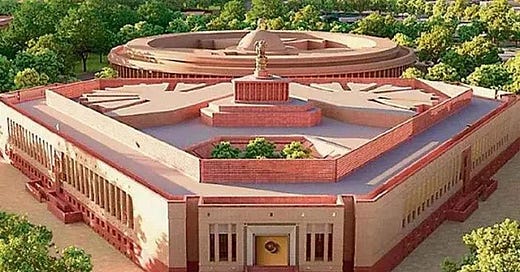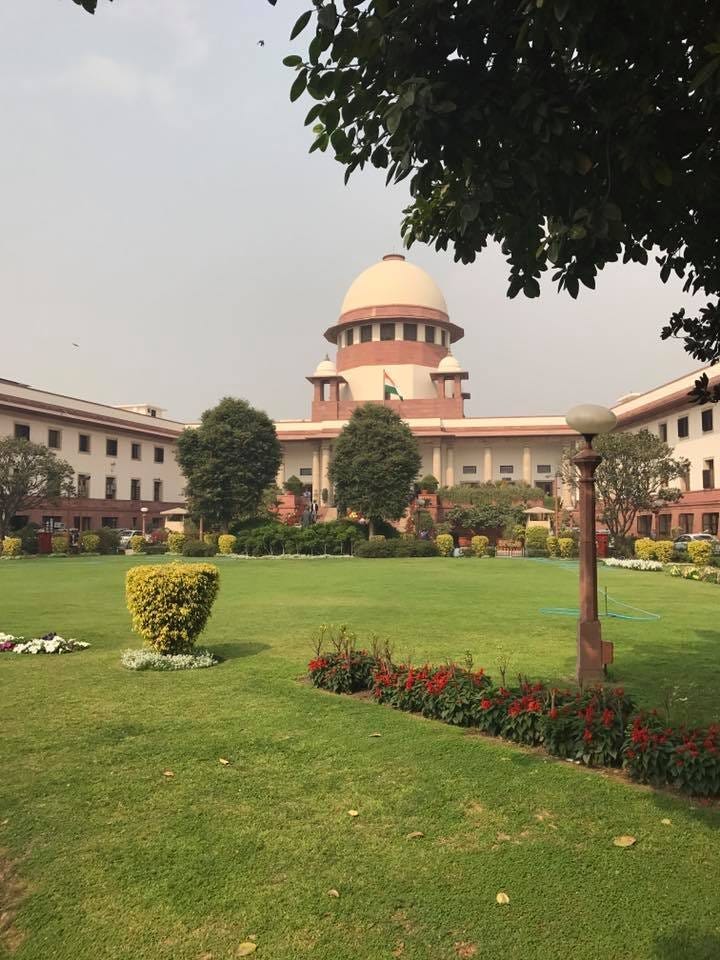Strengthening the Soul of Democracy: Redefining India’s Parliament
Revitalizing the Institution: Embracing the Transformation of India’s Parliament to Foster a Stronger Democracy.
Introduction
Today, on 28th May, 2023, in a historic moment, the Prime Minister Shri Narendra Modi inaugurated the new Parliament building in New Delhi, marking a literal as well as a metaphorical departure from India’s colonial past. While the attention may be on the architectural marvel, it is crucial not to overlook the true essence of this transition — the institution it houses: the Parliament. This moment presents a unique opportunity to strengthen, refine, and redefine our Parliament. As the cornerstone of our democratic system, the Parliament plays a pivotal role alongside the Constitution. This relationship is dynamic and mutually dependent. Therefore, it is also imperative that we place the citizen at the center of our political discourse, safeguarding their Fundamental Rights and upholding the “ dignity of the individual”, as mentioned in the Preamble.
The Power of the Citizen
Central to our democratic system is the underlying premise that the Constitution draws its legitimacy and power from “We, the People,” as stated in our Preamble. The Constitution draws its strength from the people, and the exercise of this power must accordingly and necessarily be dedicated to their welfare. Amidst the complexities of parliamentary proceedings, we must always remember that the ultimate purpose is to serve the citizenry. Our debates and deliberations should revolve around protecting and promoting their interests. Even the sceptre “Sengol” appropriately restored to the New Parliament building should be a constant reminder that the power flows from the people and it is held in trust, to be exercised for their welfare.
In our pursuit of a robust democracy, we must strike a delicate balance between the Fundamental Rights, the Directive Principles, and the Fundamental Duties. While the Parliament’s primary role is to enact laws, it also serves as a check on the executive. Therefore, meaningful debates, thorough examination of Bills through Joint Parliamentary Committees, and dedicated sessions such as Question Hour and Adjournment Motions should be prioritized. By doing so, we ensure that our legislative actions align with not only the letter but also the spirit of the Constitution.
Preserving the Constitution’s Basic Structure
The preservation of the “basic structure of the Constitution,” as defined by the Supreme Court in the Kesavananda Bharati case, is of utmost importance. This includes safeguarding the independence of the judiciary and maintaining the limited scope of judicial review. Enactments should not be driven solely by brute majorities but should instead involve wider consultations. The recent example of the Farm Laws and their subsequent repeal exemplifies the magnanimity and statesmanship required in legislative decision-making.
The Vital Role of the Opposition
A thriving democracy relies on the presence of a robust opposition that offers constructive criticism, highlights government deficiencies, and provides valuable suggestions. Regular consultations between the Government and opposition parties foster understanding and ensure the democratic process functions optimally. While protests, walkouts, and adjournment motions are legitimate tools, physical obstruction of parliamentary proceedings should be avoided. Opposition leaders are political opponents, not enemies, and their contributions are vital to a healthy democracy.
Empowering MPs and Encouraging Public Participation
Members of Parliament, both from the Lok Sabha and Rajya Sabha, should actively engage in meaningful discourse and participation both inside and outside the Parliament. Their involvement in parliamentary committees, regular interaction with their constituencies and states, and the introduction of Private Member’s Bills all contribute to a robust democracy. MPs must remain connected to the ground realities and act as the voice of the people they represent.
Revisiting Laws and Ensuring a Fair Speaker Role
The anti-defection law requires a comprehensive reevaluation, particularly in light of the recent Supreme Court judgment in the Maharashtra Shiv Sena case. The role of the Speaker should be impartial, ensuring fairness rather than partisan interests. The time limit for deciding on the disqualification of members should be enforced, and the aspect of “office of profit” concerning MPs deserves reexamination.
To ensure a strong democracy, there must be a dynamic and harmonious interplay between the Parliament, the Government, the Opposition, the higher Judiciary, and citizens at large. This moment marks a watershed in the evolution of the Indian Republic and our parliamentary democracy. It should address the urges and aspirations of our 1.4 billion people, making India not only the most populous country in the world but also a shining example of a democratic and secular republic. As we move forward, let us remain steadfast in our commitment to fostering an inclusive democracy that embodies the true essence of democratic values and principles.
Conclusion
As we applaud and embrace the new Parliament building, we must recognize that it symbolizes more than just an architectural marvel. It represents the democratic spirit of our nation and serves as a reminder of our commitment to the people. Let us seize this opportunity to strengthen, refine, and redefine our Parliament, ensuring that it remains an institution devoted to the welfare and dignity of every citizen. By nurturing a robust democracy, we can become a beacon of hope for the world, exemplifying the true essence of democratic values and principles.
_____________________________________________________
KBS Sidhu. The Author is an IAS officer of 1984 Batch of Punjab cadre, and retired from service in July 2021, as Special Chief Secretary, Punjab, after 37 years of service.
He can be reached on kbs.sidhu@gmail.com or @kbssidhu1961 or https://www.facebook.com/kbs.sidhu








Well comprehensive article on new building of Parliament which every MP of our country shall peruse to serve the people in a better way in time to come to become so called विश्व गुरु।
Concepts of Parliament, executive, the people and the constitution have been demarcated in an elaborated manner, There is lot of gap between the concepts and working democracy Sir 🙏🙏